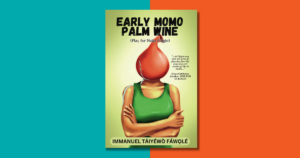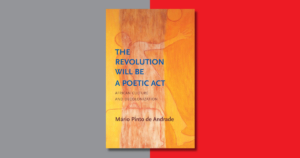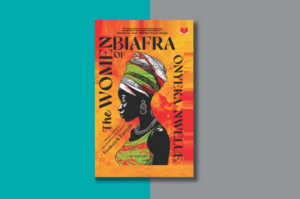
1
Where’s Carl?
Monday
It was a dark and cloudy Monday morning. Veronique Plaatjies, or Nique, as her family and friends knew her, sat at her makeshift desk. She started every morning the same way. A steaming cup of black coffee, pen in hand, her journal in front of her, the curtains pulled back and windows pushed slightly open: a perfect frame for watching the world go by. A few old magazines were stacked on a corner of Nique’s desk. Receipts and bills lay scattered next to an empty handbag. She tucked one end of the towel wrapped around her body back into place, leaned back into the chair, and reached for her coffee mug. Her eyes jumped over the potted plants and the small herb garden that she had started in the corner of her yard. She never thought she would have a house to call her own, let alone a garden. But there were many things she never thought she would accomplish.
She opened the journal her boyfriend, Byron, had bought her to celebrate their seventh year together. Everyone called him the Don of the Shadows because it didn’t matter what happened in the Shadows, Byron knew about it. He was the boss of it all.
Winter is here, she wrote. Her head was cluttered with worries. Gershwin and his constant troubles with his mother. Carl, who she had last seen a week ago. Sometimes Nique wished she could go and pack Gershwin’s bags herself, but she knew life didn’t work like that. She scribbled across the page: Toxic relationships last because people stay. People will do what they think they must do, even if it means staying in places where they’re not wanted. But she never understood straight people’s obsession with trying to fix those who didn’t love like they did. What was there to fix? And Gershwin’s mother, Rose, seemed to be the captain of that club. If she only knew that her son was secretly dating her crush, Pastor Richard. But Nique would rather deal with Gershwin’s demons than the dragon devouring Carl. She accepted that Carl was a lost cause. Meth addiction was an illness with no cure, and no one was to blame for the life choices he had made. Aunty Merle always said, “We make choices, and those choices pave the way for us.”
Nique’s focus floated to the street. Most mornings she made up stories about the people she saw outside her window, but today she just sat and watched them pass by. She was struggling to calm the uneasy feeling in the pit of her stomach. The rhythmic flow of people moved in and out of her window frame. Little kids dressed in oversized hand-me-downs and backpacks too big for their bodies chased after their older siblings who rushed down the street to catch either a bus or a train to school. A small group of women walked into the frame, all with handbags tucked under their arms as they shouldered against the wind. All of them in a hurry to board a crowded bus that would take them into the city, where they’d spend the day working at one of the last remaining clothing factories. Nique smiled as she saw a few of her customers walk by. It didn’t matter how many times she did their hair over the weekend, come Monday, their curls would be tucked away under their colourful headscarves. The women exploded in laughter as they exited Nique’s window frame. Next came a group of workers dressed in paint-stained blue overalls. They were listening to loud music playing over a boom box hidden out of sight in a backpack.
When Nique had stayed in Joburg the previous year, she had often longed for the rhythmic flow of the Shadows. She had missed the comforting familiarity of everyday life. Nique’s eyes zoomed in on her neighbours, two elderly sisters, as they shuffled through their front gate, waving down a minibus taxi coming up the street.
Nique took a sip of her coffee, which had lost its heat and sweetness. She sighed with satisfaction because that’s how she liked her coffee: cold, bitter, and with no cream. Her friends never understood her love for cold coffee. They also never understood her taste in men. The men were either ugly, dark-skinned, or fat, or in Byron’s case, all three. But she found comfort in Byron, and what others saw as ugly and unattractive she saw as supportive and loving. The fact that he was the biggest gangster in the Shadows didn’t matter to her, nor did his wife or kids. It was love at first sight, and he never once disrespected Nique for the way her body had been before her operations.
A seagull caught Nique’s eye, fighting the merciless winds beneath the thick cloudy skies in the direction of Table Mountain. It pushed forward, then was thrown back, then pushed forward again. The bird’s flight continued for a few minutes before it suddenly dropped down, probably tired of struggling to get where it needed to go. The seagull landed somewhere outside Nique’s view. She always wondered if other people also saw Table Mountain as a landmark to show where home was. If they saw what she saw—that the unmistakable sight of Table Mountain meant she was home.
The alarm on her cellphone rang out. Nique got up to silence it and unplugged the cellphone from its charger. The faint smell of perfume that wafted from the jersey she had flung over the chair next to her bed reminded her of her mother. Nique thought back to the last few weeks before her mother passed. The house had been full of people she didn’t know: her mother’s work colleagues and well-meaning neighbours who fussed around her mother’s bed. They all wanted to be there for Aunty Sandy but ignored Nique like dust on the mantelpiece. Some walked around her; others looked at the wall or a crack in the cement floor while talking to her. Nique’s mother had refused to accept her son as a woman, and the neighbours didn’t make it any easier for her mom to accept Nique as a trans woman.
Nique’s attention returned to her front gate where a minibus taxi was stopped. Music boomed, shaking the taxi. She felt sorry for people who had to ride in taxis like that, music blasting out of the speakers no matter the time of day or night. Her neighbours shouted at the driver as the taxi’s sliding door closed and it moved off without them. Two more women joined them as they waited for the next taxi that came down the street. This time Nique heard no music. They slipped into the taxi, disappearing one by one.
She sat back down at her desk and her pen scribbled across the page. Every day it was the same story. The same people, with the same problems, walking in the footsteps of the day before. The Shadows: A TV drama, she thought. But she loved its drama. The small houses were squashed in next to each other, with asbestos-cement roofs that shimmered green and gold when the sun rose, each one standing at attention before Table Mountain. Sometimes she prayed to win the lottery so she could help her people living in poverty. But no matter how bare people’s cupboards were, they always made it a point to paint their houses with bright colours and decorate their gardens with colourful flowers and green shrubs, shining a light into the dark corners of their lives in the Shadows.
Nique picked up her coffee mug and rubbed her hand over the big red letters on the white porcelain. Besties, they read. She remembered the day she got it, a few months before she left for Joburg. The five of them— Gershwin, Sara, Ley, Carl, and Nique—had gone out to celebrate Carl’s birthday. They’d been inseparable since primary school, their bond only growing stronger as they got older. “The Terrible Five,” Aunty Merle always called them. Nique wanted matching necklaces, but Sara reminded her of the time she was walking around with a green neck from the cheap necklace she had bought at the outdoor market that popped up at the Grand Parade market in front of City Hall every Wednesday and Saturday. That was the last year they really knew Carl, before he started hanging with the wrong crowd, drinking and drugging. No one could have imagined that Carl would be the one to get lost in the shadows.
***
Preorder Innie Shadows here: Amazon
Excerpt from INNIE SHADOWS published by House of Anansi Press. Copyright © 2024 by Olivia M. Coetzee.









COMMENTS -
Reader Interactions